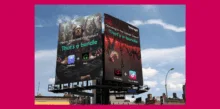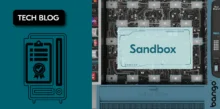Freemium wins out: Proof
by Sukey Miller

The emergence of the app economy has brutally exposed the limitations of many established business models. The basic model of pay to play has been severely challenged. The average smartphone user now expects most of the content they consume to be free, and is rather unlikely to pay for content until they’ve played with it, tested it, and want to go deeper. This is the “freemium” model, whereby an application gives away its core functionality for free and offers upgrades, normally in-app purchases, to add certain features.
Bango powers payment for many of the world’s largest app stores. We’re in a unique position to analyze purchasing behavior and to track the progress of the freemium model. Our latest analysis reveals two key findings:
1. The freemium business model has won. More than 97% of payments for digital goods are in-app, and that number has been steady for some while
2. A tiny number of massively successful apps dominate. Of the top 100 sellers, 97% are from just 3 games, and every one of the top 70 sellers were from those same 3 games
The freemium business model has won
We analyzed all mobile payments in one of the world’s largest app stores, in the 6 months from November 2013. We discovered that a tiny minority of payments – around 1 in 40 – were to buy content up-front. The rest were all in-app purchases. Just as noteworthy, the trend is consistent, with very little variation month on month.
To take another perspective and look at the top 100 sellers, every one of the top 73 sellers during the same period were in-app purchases. Number 74 in the chart was the first pay up-front app.
This conclusion is clear: Freemium is the de facto monetization model for paid content. This is no longer a trend, it’s a fact.
Month % in-app purchases
Nov-13 97.51%
Dec-13 97.38%
Jan-14 97.70%
Feb-14 97.67%
Mar-14 97.12%
Apr-14 97.28%
A tiny number of massively successful apps dominate.
So what are we buying? Our data shows an amazing conformity in our purchasing behavior.
Focusing again on the top 100 sellers, 97% and every single one of the top 70 were derived from just 3 games. Those games were:
1. Candy Crush Saga
2. Pet Rescue Saga – A puzzle game from the makers of Candy Crush Saga
3. Farm Heroes Saga – Another puzzle game from the makers of Candy Crush Saga
Operator billing for micropayments
Mobile monetization remains a huge challenge for developers. Developers must embrace the freemium model, and find innovative features, upgrades and widgets that enrich our enjoyment. Meanwhile, consumers get to experience content before they engage fully, with very little risk of being disappointed by a purchase.
The good news is that mobile payment technology has made huge progress, and is now ideally suited to the freemium challenge. Most of the world’s largest app stores have embraced operator billing – charging a purchase to the phone bill in one-click – which makes charging small amounts incredibly easy.
The freemium model, backed up by robust mechanisms for micropayment, is now fully entrenched in the digital content space. The only question is which other industries will be disrupted. Music rights holders, literary publishers, broadcasters, all are watching closely…
Subscribe to our newsletter
Get the latest subscription bundling news and insights delivered straight to your inbox.




